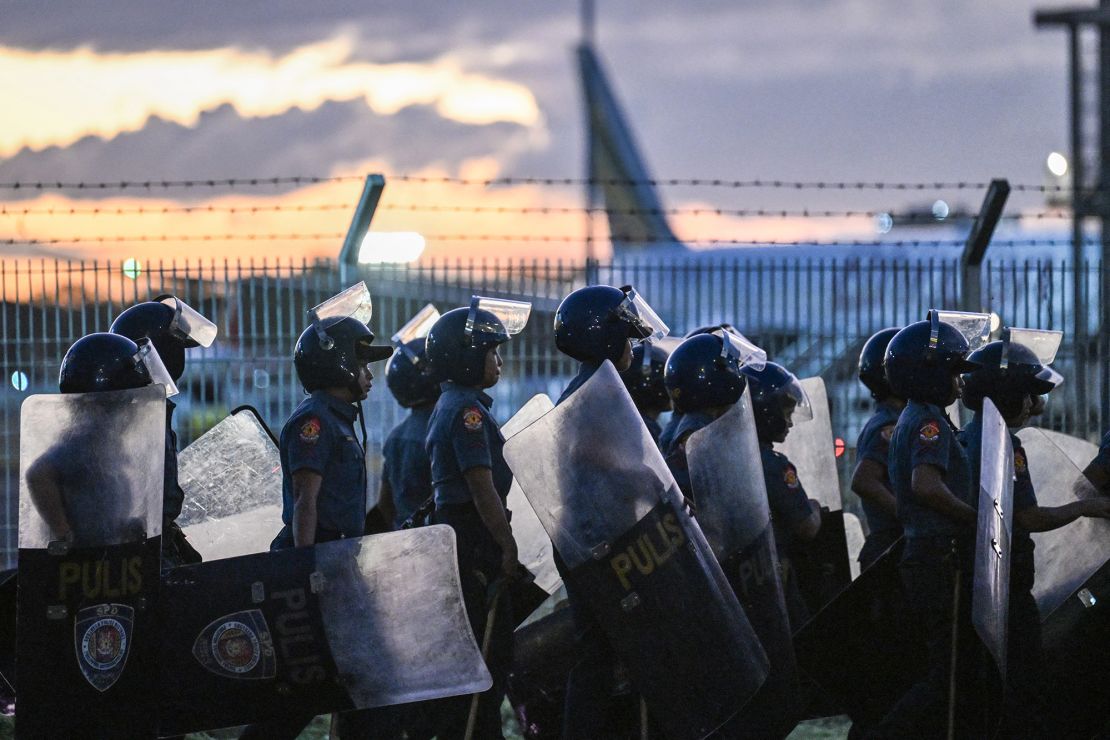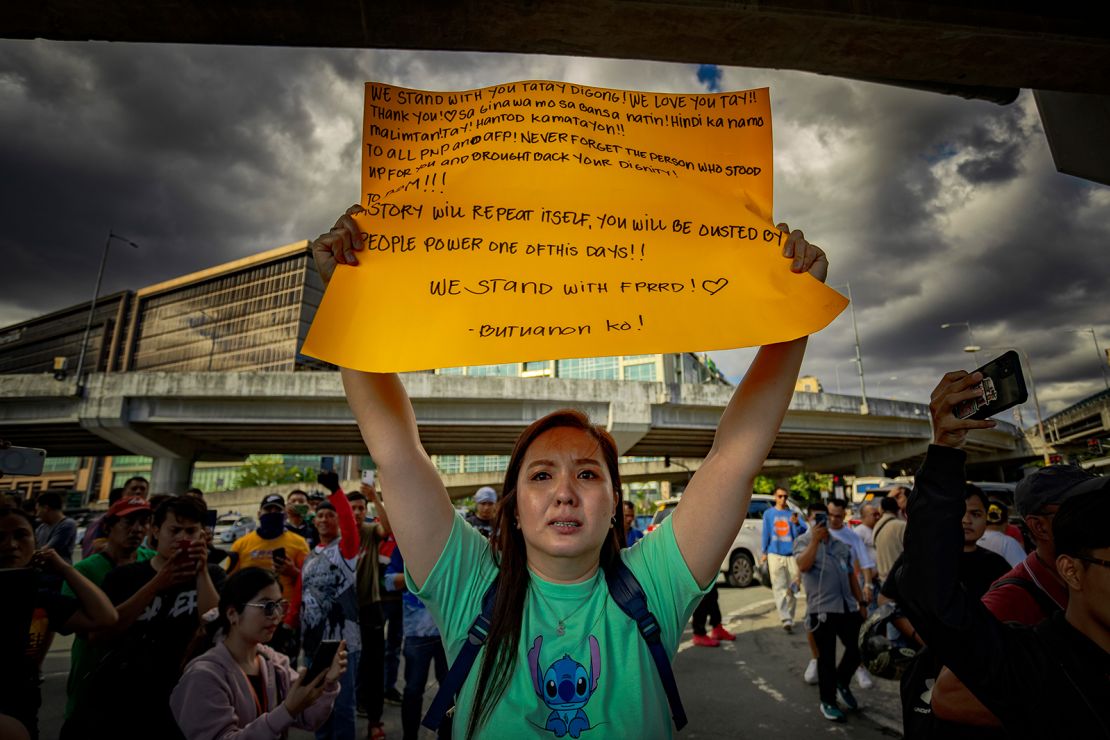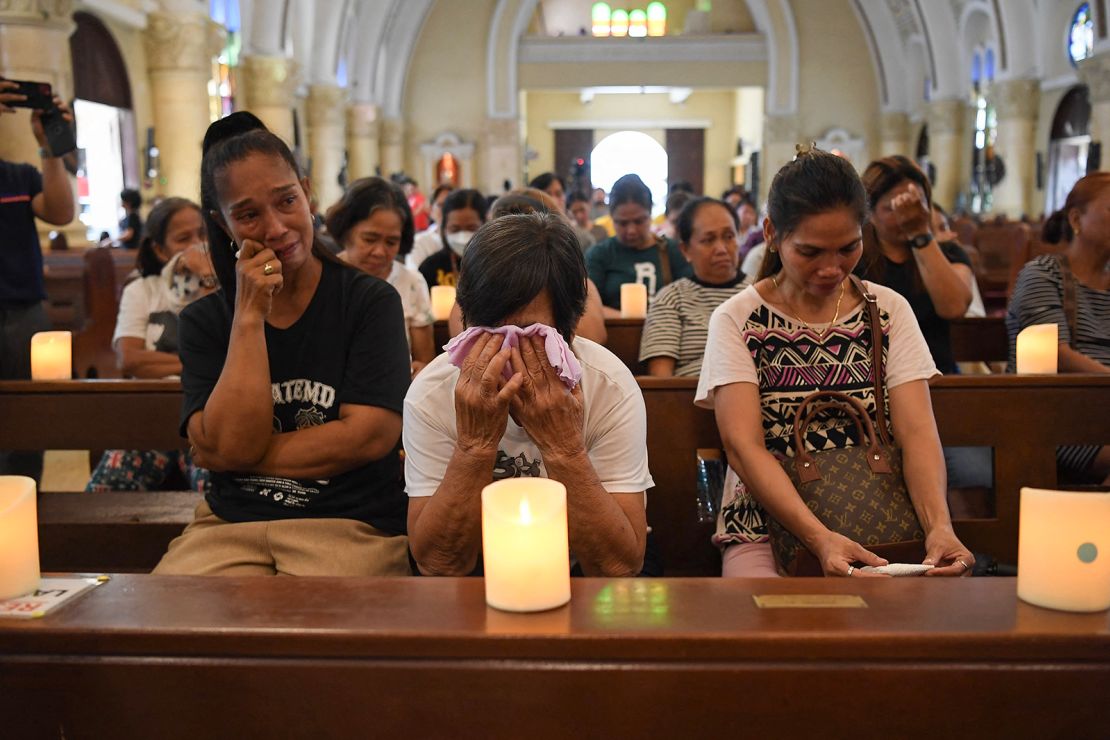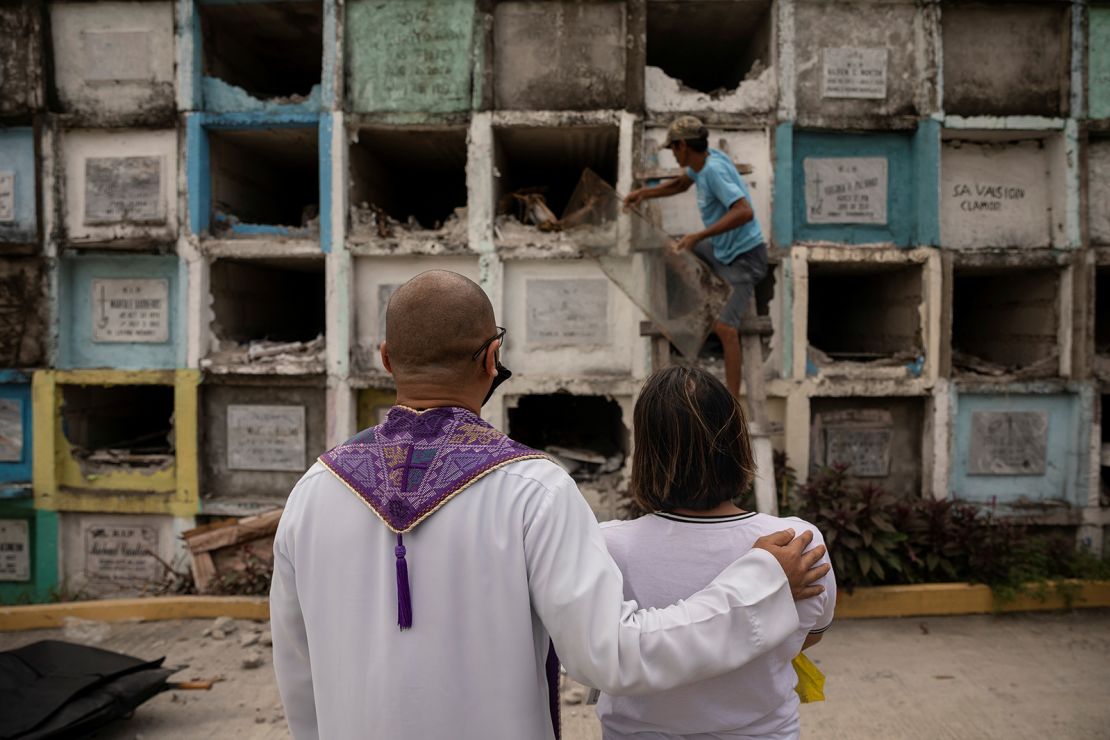CNN
—
An elected leader once dubbed “The Punisher” was handed to The Hague to face trial for crimes against humanity over his brutal war on drugs, in a breathtaking reversal of fortune for a politician who once openly boasted about killing people and placing opponents on hit lists.
Rodrigo Duterte ran the Philippines for six turbulent years, during which he oversaw a brutal crackdown on drugs, openly threatened critics with death and tongue-lashed a host of global leaders from the Pope to former US President Barack Obama.
On Wednesday, the International Criminal Court (ICC) in the Netherlands confirmed the former Philippines leader was now in its custody.
A former prosecutor, congressman and mayor, Duterte built his no-holds-barred reputation in the southern Philippine city of Davao. He swept to the presidency in 2016 on a populist – and popular – promise to replicate the hardline tactics of his hometown and wage war against drugs and drug pushers across the Southeast Asian nation.
“All of you who are into drugs, you sons of b**ches, I will really kill you,” he told a huge crowd in one of his many characteristically profane-laced 2016 campaign speeches. “I have no patience, I have no middle ground. Either you kill me or I will kill you idiots.”
Once in power he unleashed what rights groups called “death squads” to eradicate drug pushers – many of the victims young men from impoverished shanty towns, shot by police and rogue gunmen as part of a campaign to target dealers.
Police data said 6,000 people were killed. Some rights groups say the death toll could be as high as 30,000 with innocents and bystanders often caught in the crossfire.
Duterte’s blood-soaked presidency ended in 2022. Three years later, only 8 policemen had been convicted for 5 of the victims killed in the war on drugs, according to court documents.
The ICC launched an investigation into allegations of “crimes against humanity” committed by Duterte during both his time as national leader and mayor of Davao.
Duterte has long denied the accusations of human rights abuses and contends the drug issue is one for domestic law enforcement. He has repeatedly said he will not kowtow to foreign jurisdiction and taunted the ICC, urging prosecutors to “hurry up” and move on him.
Two days before his arrest, he slammed the ICC in a typically fiery speech to supporters in Hong Kong.
“From my own news, I have a warrant…from the ICC or something… these motherf***ers have been chasing me for a long time. What did I do wrong ?” he said.

But the tide had suddenly turned. Authorities were waiting for Duterte to return from Hong Kong, and arrested him at the main airport in Manila, sparking chaotic scenes.
As the news filtered out, many were left in shock.
Some flocked to churches in the majority Catholic country to attend impromptu mass to commemorate the thousands of victims of his drug war, seeing the move as a first step towards overdue justice.
And just before midnight, Duterte was back on a plane – this time bound for the Netherlands in what appeared to be a stunning end to a stormy and violent stint at the top of Philippine politics.
In a Wednesday statement, the ICC said Duterte was “surrendered” to its custody, and a hearing would be scheduled in “due course.” It is unclear when he will make his first court appearance.
Shortly before landing in Rotterdam, Duterte released a defiant video message on his Facebook page. “I was saying to the police and military that you do your job and I will take responsibility, so it has come to this,” he said.
“This will be a long legal proceedings, but I say to you, I will continue to serve my country. And so be it, if that is my destiny,” he added.

The arrest likely owes more to Duterte being on the wrong side of a feud between two of the Philippine’s most high-profile families than the might of the ICC, which cannot carry out arrests on its own and relies on the cooperation of national governments to execute warrants
Duterte’s clan was previously in an alliance with the famed Marcos political dynasty, with his daughter Sara Duterte-Carpio serving as deputy to current President Ferdinand Marcos Jr.

But in recent months the alliance collapsed, descending into public tirades and name-calling.
In October, Duterte-Carpio aired a litany of grievances against the president in a two-hour livestreamed press conference, saying she “wanted to chop his head off.”
Then she said in an online news conference on November 23 that she had contracted an assassin to kill Marcos, his wife and House Speak Martin Romualdez if she were killed, a threat she warned wasn’t a joke.
Marcos had said the Philippines will “disengage” from any contact with the ICC, as Manila does not recognize its authority over matters of national sovereignty.
That’s because Duterte withdrew the Philippines from the court in 2019.
But under the ICC’s withdrawal mechanism, the court keeps jurisdiction over crimes committed during the membership period of a state.
President Marcos said he was obliged to follow Interpol’s request to arrest Duterte.
“Interpol asked for help, and we obliged because we have commitments to the Interpol, which we have to fulfil. If we don’t do that, they will not, they will no longer help us with other cases involving Filipino fugitives abroad,” Marcos said in a late-night presser after the plane carrying Duterte took off.
Carlos Conde, a Philippines researcher for Human Rights Watch (HRW) Conde said Duterte’s swift arrest and removal was a “pleasant surprise” that caught also a lot of people off guard.
“The victims of the drug war – thousands of victims – have pretty much lost faith in the domestic accountability mechanisms in the Philippines. So, they were pinning their hopes on the ICC,” he told CNN.
Nobel laureate Maria Ressa told CNN Duterte’s arrest marks a major moment for the country and signals that years of impunity can be ended.

“It’s historic for the Philippines, it’s the first time a Philippine president has been arrested for crimes against humanity. That an Interpol-led arrest actually ended this impunity under president Duterte that now has him going to The Hague,” said Ressa, former CNN Manila bureau chief and CEO and founder of news site Rappler.
Human rights campaigner Aurora Parong told CNN many advocates and drug war victims’ family members were elated with a momentary sense of relief after hearing Duterte had indeed been arrested.
“But there is this mixed feeling of joy and hope and anxiety because we do not exactly know where this will end up to what will be the outcome. Will there really be accountability?” said Parong, who is also co-chair of the Philippine Coalition for the ICC (PCICC).
But she cautioned it would be an excruciatingly long road to justice.
“It is time consuming. It will take years before there will be a conviction at the International Criminal Court. The waiting is really difficult for the victims and the families of the victims of the bloody war on drugs.”
Located in The Hague in the Netherlands, the ICC investigates and prosecutes individuals for war crimes, crimes against humanity, genocide and crimes of aggression against the territory of its member states, of which there are 125.
Duterte’s arrest and transfer is a significant victory for the body. The court cannot carry out arrests on its own and relies on the cooperation of national governments to execute warrants – which often rests on domestic politics and political will on whether to follow through.
Many of those on its wanted list remain at large, unruffled by the serious charges laid against them.
The court has been rounded on by the United States for seeking the arrests of Israeli Prime Minister Benjamin Netanyahu and Defense Minister Yoav Gallant on charges of war crimes and crimes against humanity for Israel’s military actions in Gaza following Hamas’ October 7, 2023, attack.
The ICC simultaneously sought the arrests of top Hamas leaders, including Yahya Sinwar, who was later killed.
Neither the US nor Israel are members of the ICC.
The court has also issued a warrant for Russian President Vladimir Putin for his invasion of Ukraine, although it is unlikely the warrant will be served any time soon. Putin travelled to ICC member Mongolia last year, but was not arrested.

